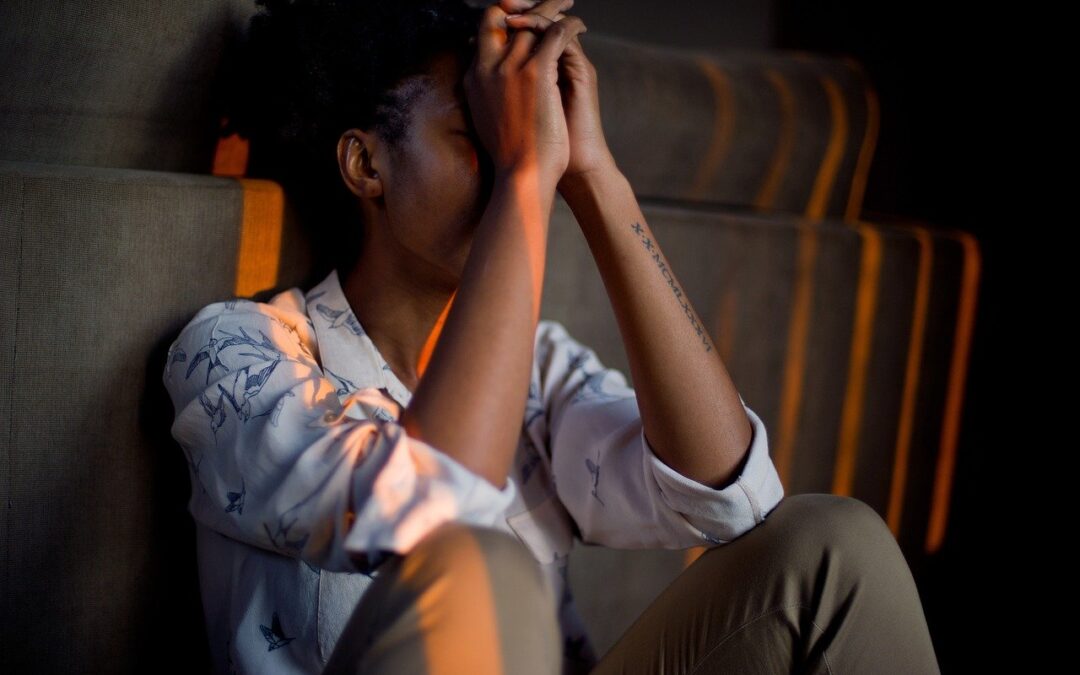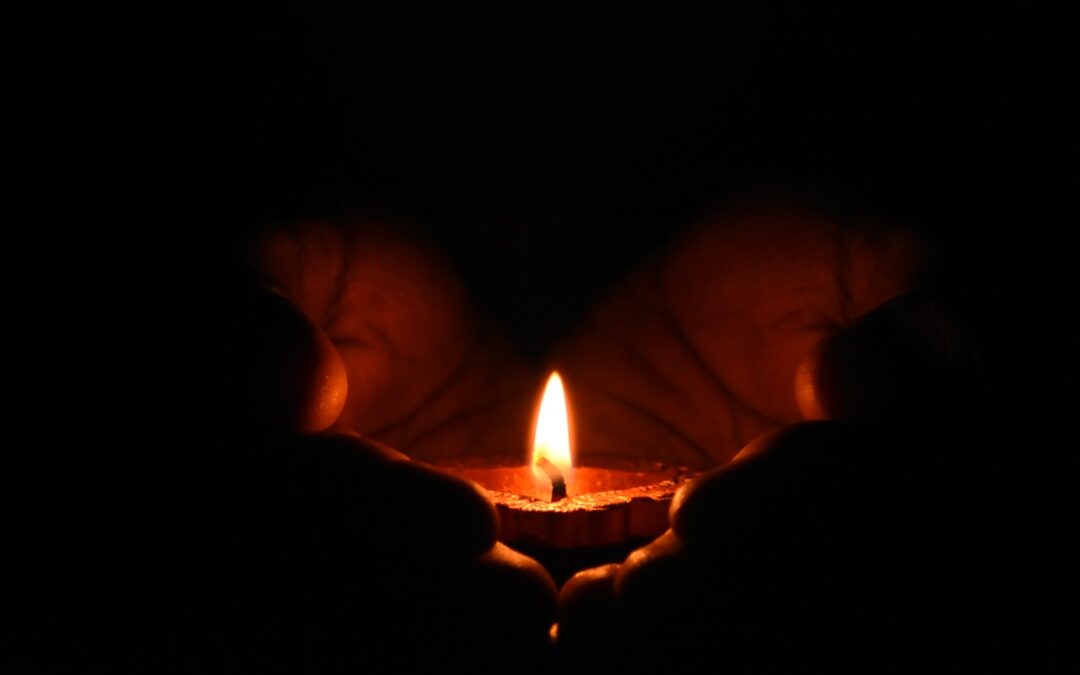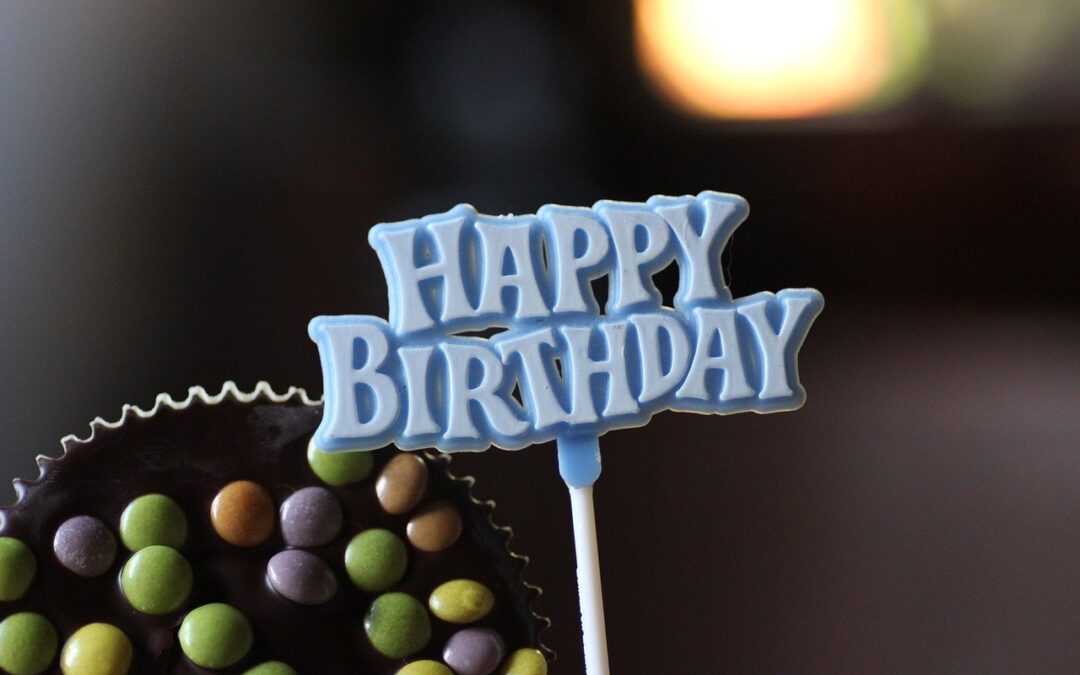
The Worst Has Already Happened
Growing up, I wanted to think I was a “glass half full” kind of person. But the truth is, I was always anticipating and worried about the next bad thing I was sure would happen to me. I lived amid the constant feeling that life around me was unpredictable, chaotic, and often unfair. That is a bitter pill for a little kid to swallow.
My solution to get rid of the ever present anxiety was to continually try to change myself and my behavior.
It was a desperate attempt to control the people and situations around me. I’m sure you can guess that this never seemed to work. It might have an effect for a short while, but then something would “go wrong” again.
Ironically – and unbeknownst to me at the time – it caused even more anxiety. I was constantly trying to mentally catalog the apparent cause and effect my behavior and actions had. If I did A, then B happened. Except that sometimes when I did A, then D, G, or even L happened. It was too confusing and hard to keep track of. But being prone to perfectionism, I kept trying.
Looking back, I have to wonder what my ultimate fear was.
I know for sure I didn’t like the feelings of sadness, loneliness, shame. And certainly didn’t like feeling like I was at the mercy of this unfair universe. But what was it that I was scared would happen if I didn’t keep trying to keep it all under my control? To this day, I’m still not sure.
Those feelings of anxiety and desperate attempts to control the people and situations in my life followed me into adulthood. It just became a way of life for me. And it became more complex as the years went on. There were more people and more situations I had to juggle to try to control. And bigger risks at stake.
Instead of just making sure I was getting good grades in school to get into college, I now had to make sure I kept my employers happy so that I could keep a roof over my head and food on my table. After having a family of my own, I felt the responsibility of not only trying to keep my own life under control and happy, but theirs too. The anxiety intensified, and it became overwhelming.
Overwhelming or not, it was my life, and I did the best I could at trying to balance all of it.
Amid the anxiety and complexity of my life, I was able to find some happiness. My children were beacons of light and love that I held tight to. After ending a disappointing marriage, I found love again and added a stepson and then a daughter to my beloved family.
We were a tight-knit family that focused all our free time on finding new adventures and memories to share. The anxiety and challenges never went away, but it was better balanced by the rewards my family brought.
That all ended on September 30, 2009. On that day my 4-year-old daughter, Margareta, drowned in our pool while we were at home.
On that day, I learned my ultimate lesson: no matter how tightly we try to control our lives and everything in it, we are not in charge of what happens to us.
That stark reality is scary and horrible and can be incredibly unfair, but we cannot change it.
At first, the grief of losing my daughter was like experiencing all those feelings of anxiety, sadness, loneliness, unfairness, and chaos over the course of my lifetime times infinity. True to my lifetime of experience, I tried desperately to overcome the intense feelings of grief by controlling my actions and behaviors. It didn’t work; it seemed to have the opposite effect of just intensifying them instead.
This beast that was grief was unlike anything I’d ever encountered. The harder I fought to suppress it, the worse it seemed to get.
The pain remained unbearable, so I waged this battle against grief for several years. Just as I had done before, I mentally cataloged all of the grief triggers I experienced in hopes to avoid them the next time. I adjusted my response and behavior to each trigger to try to find which ones made the pain lessen. To my frustration, none of them did and the triggers remained unpredictable and intense.
At some point, I realized that my lifelong urge to try to control my life was actually making things worse. And made the choice to stop fighting grief. In doing so, I finally began to understand what I had always been looking for. The irony that I learned this lesson in the face of my worst nightmare come true was not lost on me. It became the silver lining around the dark cloud that I was immersed in.
The reality is that the worst has already happened. My daughter is dead and there is nothing that I can do to change that.
Knowing that I survived the worst pain I will ever face has significantly reduced my anxiety and changed my perspective forever. Challenges that used to seem insurmountable or cause for alarm now appear manageable in comparison. I now know I have the inner strength to handle whatever comes my way. I now have the humility to know that I cannot control the emotions or reactions of anyone else. Showing my vulnerability and asking for help is not a sign of weakness, but one of courage and strength.
I choose to no longer look at life with a “glass half full” versus “glass half empty” mentality. The glass is what it is.
We will have good days and bad days. Our experience will include joy as well as sorrow. We will be filled with love and with pain. And we will continually be faced with challenges and uncomfortable feelings.
This is the ultimate lesson I have learned: I am not in control of my life. I never was. The only control I have is the choice to allow life to happen to me without fighting it. To accept each situation – no matter how difficult or painful. And instead, focus my attention and energy on answering the question, “What do I do next?”






 This website was inspired by the memory of Margareta Sol Kubitz in hopes of helping others work through the pain of grief.
This website was inspired by the memory of Margareta Sol Kubitz in hopes of helping others work through the pain of grief.